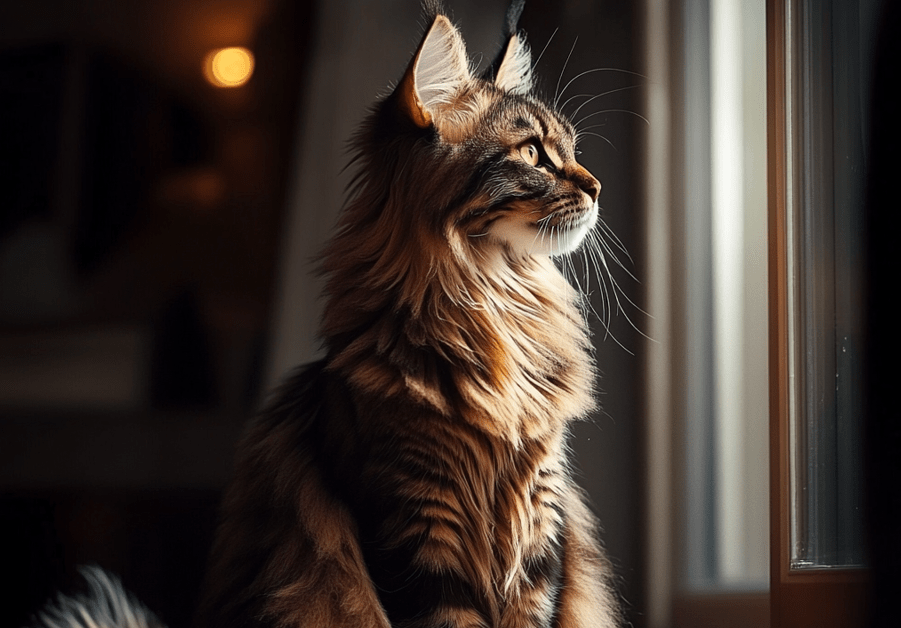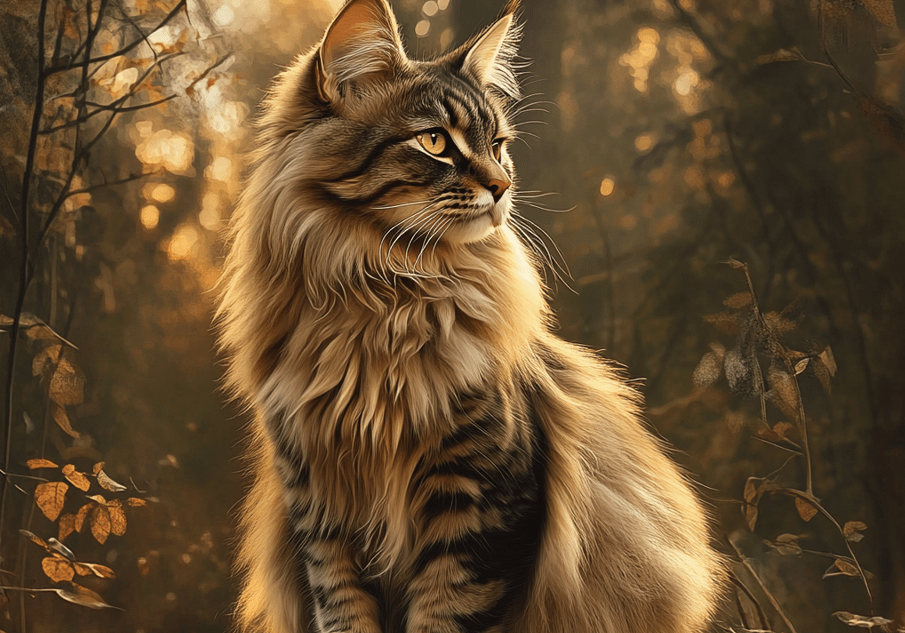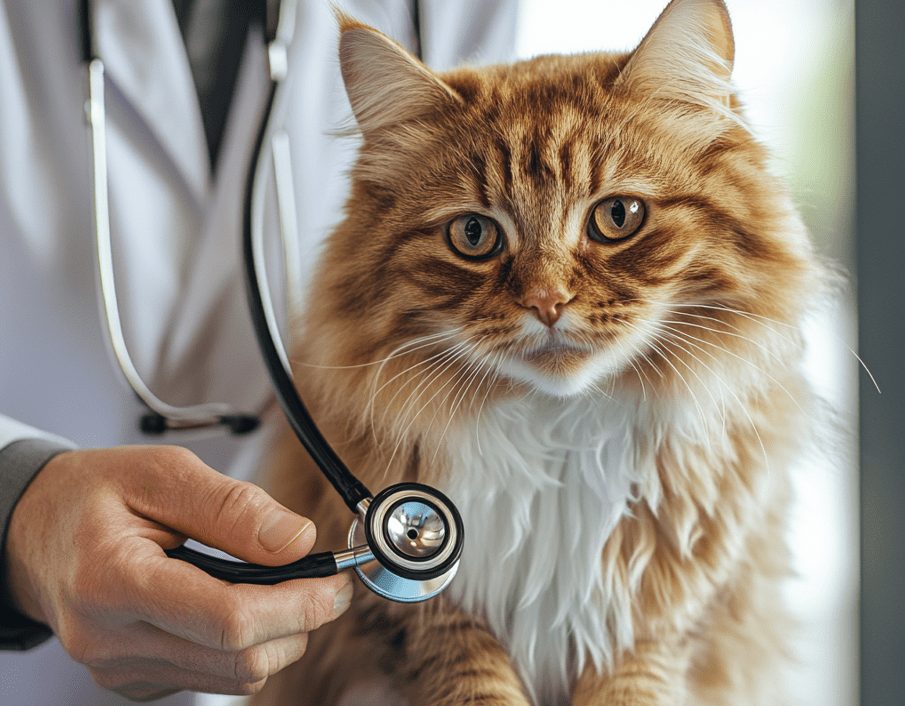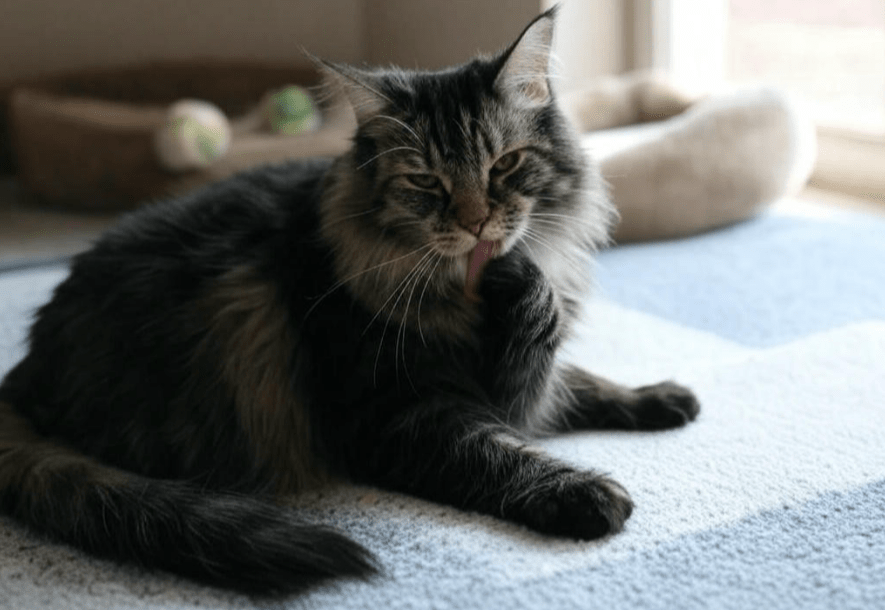
Maine Coon cats, known for their large size, tufted ears, and friendly personalities, are beloved by cat owners worldwide. However, if you’ve noticed your Maine Coon drinking water excessively, you might be wondering whether this behavior is normal or a cause for concern. Excessive water consumption, also known as polydipsia, can be a sign of underlying health issues, environmental factors, or even typical Maine Coon traits. In this comprehensive guide, we’ll explore the reasons behind why your Maine Coon drinks so much water, how to identify potential problems, and practical solutions to ensure your feline friend stays healthy and hydrated.
Understanding Normal Water Consumption for Maine Coon Cats
Before diving into the causes of excessive water drinking, it’s essential to understand what’s normal for Maine Coon cats. These large felines have unique needs due to their size, activity levels, and metabolism. On average, a cat should consume about 3.5–4.5 ounces of water per 5 pounds of body weight daily, including water from food and drinking. Since Maine Coons can weigh between 10–25 pounds, their water intake is naturally higher than smaller breeds.
For example:
-
A 15-pound Maine Coon may need 10–13.5 ounces of water daily.
-
Wet food, which contains 70–80% water, can significantly contribute to their hydration.
Maine Coons are also known for their playful behavior around water. Many enjoy splashing in their water bowls, dipping their paws, or even drinking from running faucets. This fascination with water is often harmless but can sometimes make it seem like they’re drinking more than they actually are.
However, if your Maine Coon is consistently drinking more than expected, visiting the water bowl frequently, or showing other unusual behaviors, it’s time to investigate the underlying causes.
Common Causes of Excessive Water Drinking in Maine Coons
Excessive thirst in Maine Coon cats can stem from a variety of factors, ranging from benign habits to serious medical conditions. Below, we outline the most common reasons why your Maine Coon might be drinking more water than usual.
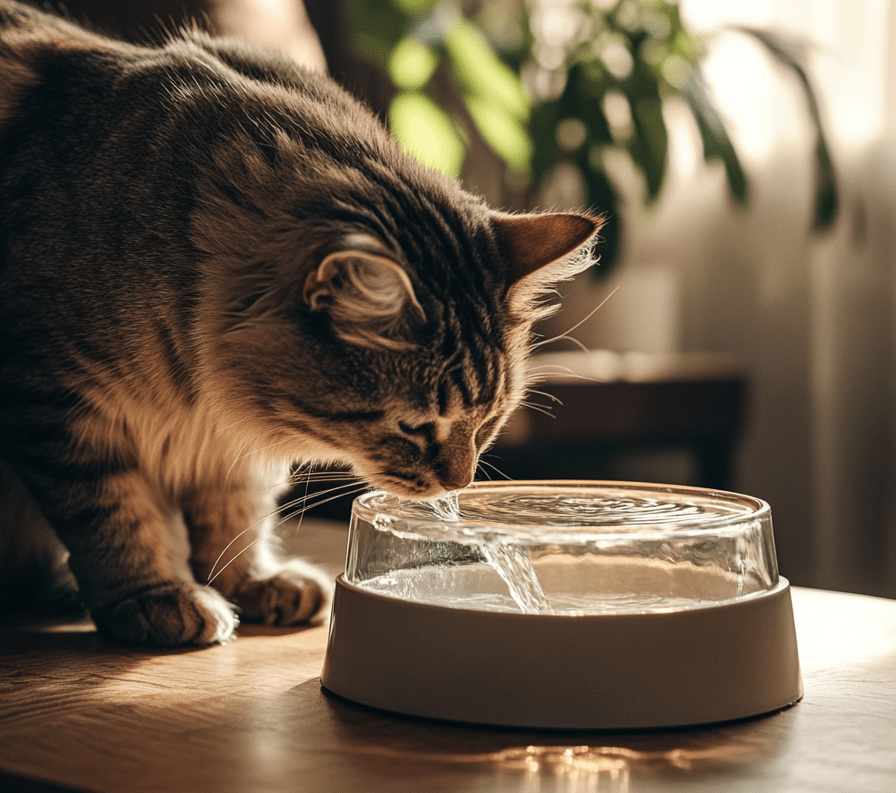
1. Dietary Factors
The type of food your Maine Coon eats plays a significant role in their water consumption. Cats on a dry kibble diet often drink more water to compensate for the low moisture content in their food (typically 10% water). In contrast, wet or raw food diets provide more hydration, reducing the need to drink excessively.
Why it matters for Maine Coons:Maine Coons have a hearty appetite and may consume large amounts of kibble, increasing their need for water. If you’ve recently switched your cat’s diet to dry food, this could explain the increased thirst.
Signs to watch for:
-
Increased water intake after switching to dry food.
-
Normal behavior with no other symptoms.
Solutions:
-
Transition to a high-quality wet or raw food diet to boost hydration.
-
Ensure fresh, clean water is always available.
-
Mix wet food with dry kibble to balance moisture intake.
2. Environmental Factors
Hot weather, high activity levels, or a dry indoor environment can cause your Maine Coon to drink more water. Maine Coons have thick, water-repellent coats, which can make them feel warmer, especially in humid climates.
Why it matters for Maine Coons:Their large size and active nature mean they may lose more water through panting or play. Additionally, Maine Coons living in homes with low humidity (e.g., during winter with heating systems) may drink more to stay hydrated.
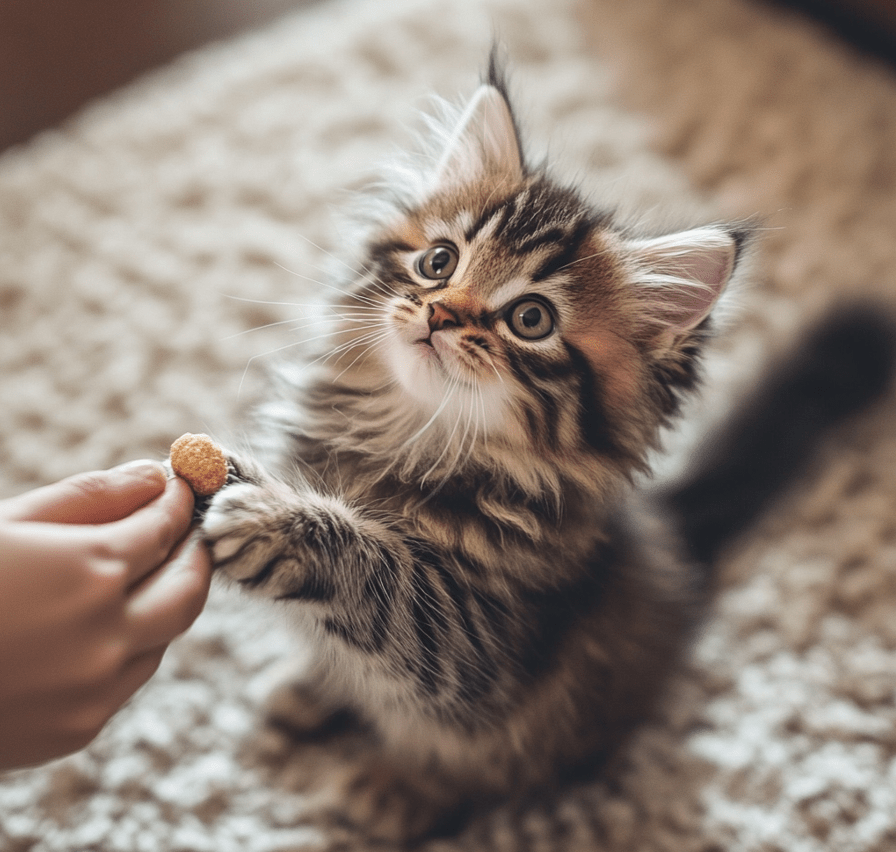
Signs to watch for:
-
Increased thirst during hot weather or after playtime.
-
Normal appetite and energy levels.
Solutions:
-
Provide multiple water sources, such as bowls, fountains, or dripping faucets, to encourage drinking.
-
Use a pet water fountain, as Maine Coons are often attracted to moving water.
-
Keep your home at a comfortable temperature and humidity level.
3. Diabetes Mellitus
Diabetes is a common health issue in Maine Coon cats, particularly in older or overweight individuals. This condition affects the body’s ability to regulate blood sugar, leading to increased thirst and urination.
Why it matters for Maine Coons:Maine Coons are prone to obesity, which is a risk factor for diabetes. Excessive water drinking is often one of the first signs of this condition.
Signs to watch for:
-
Increased urination (polyuria) alongside excessive thirst.
-
Weight loss despite a normal or increased appetite.
-
Lethargy or changes in behavior.
Solutions:
-
Schedule a veterinary visit for blood and urine tests to diagnose diabetes.
-
Follow your vet’s recommendations, which may include insulin therapy, dietary changes, and weight management.
-
Monitor water intake and urination habits to track progress.
4. Kidney Disease
Chronic kidney disease (CKD) is another common issue in Maine Coons, especially as they age. The kidneys lose their ability to conserve water, leading to increased thirst and urination.
Why it matters for Maine Coons:Maine Coons may be genetically predisposed to kidney issues, such as polycystic kidney disease (PKD), which can exacerbate water loss.
Signs to watch for:
-
Frequent urination or accidents outside the litter box.
-
Decreased appetite or weight loss.
-
Dull coat or poor grooming habits.
Solutions:
-
Seek veterinary care for diagnostic tests, including bloodwork and ultrasound.
-
Provide a kidney-friendly diet low in phosphorus and high in moisture.
-
Administer medications or fluids as prescribed by your vet.
5. Hyperthyroidism
Hyperthyroidism, an overactive thyroid gland, is common in older Maine Coons. This condition speeds up metabolism, causing increased thirst, hunger, and weight loss.
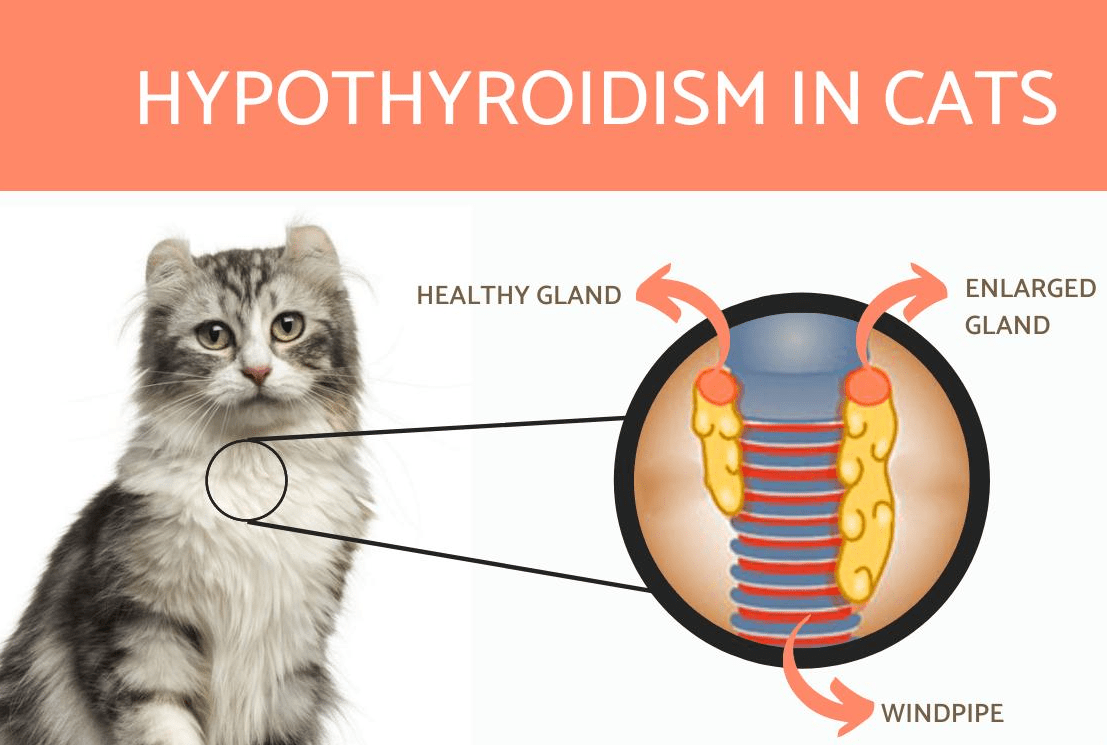
Why it matters for Maine Coons:Their large size and high energy levels may mask early signs, making excessive thirst a critical clue.
Signs to watch for:
-
Increased appetite with weight loss.
-
Restlessness or vocalization.
-
Vomiting or diarrhea.
Solutions:
-
Consult your vet for blood tests to check thyroid hormone levels.
-
Explore treatment options, such as medication, radioactive iodine therapy, or surgery.
-
Monitor water intake to assess treatment effectiveness.
6. Urinary Tract Issues
Urinary tract infections (UTIs), bladder stones, or feline lower urinary tract disease (FLUTD) can cause Maine Coons to drink more water due to discomfort or inflammation.
Why it matters for Maine Coons:Their large size and potential for obesity increase the risk of urinary issues, especially in males.
Signs to watch for:
-
Straining to urinate or blood in the urine.
-
Frequent trips to the litter box with little output.
-
Vocalizing or discomfort during urination.
Solutions:
-
Seek immediate veterinary care for a urinalysis and imaging.
-
Follow prescribed treatments, such as antibiotics or dietary changes.
-
Encourage hydration to flush the urinary system.
7. Behavioral or Stress-Related Causes
Maine Coons are intelligent and social cats, but stress or boredom can lead to compulsive behaviors, including excessive water drinking (psychogenic polydipsia).
Why it matters for Maine Coons:Their curious and active nature means they may develop habits like over-drinking if understimulated.
Signs to watch for:
-
Drinking water excessively without other symptoms.
-
Changes in routine, such as moving or new pets.
-
Normal bloodwork and urinalysis results.
Solutions:
-
Provide mental and physical stimulation through toys, climbing trees, or interactive play.
-
Use puzzle feeders to engage their intelligence.
-
Consult a feline behaviorist for persistent issues.
How to Monitor Your Maine Coon’s Water Intake
To determine whether your Maine Coon’s water consumption is excessive, you’ll need to monitor their habits. Here’s how to do it effectively:
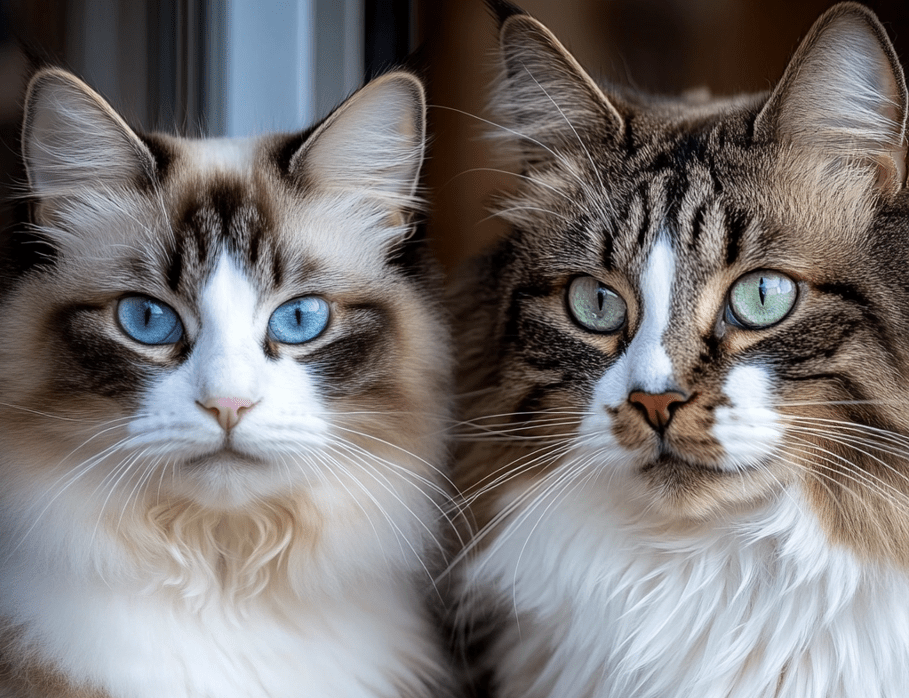
-
Measure Water Intake:
-
Use a graduated water bowl or mark the water level to track daily consumption.
-
Note how often you refill the bowl and compare it to their body weight needs.
-
-
Observe Urination Patterns:
-
Check the litter box for increased clumping or frequency.
-
Look for signs of straining or abnormal urine color.
-
-
Track Other Symptoms:
-
Record changes in appetite, weight, energy, or behavior.
-
Use a journal or app to share details with your vet.
-
-
Compare to Normal Behavior:
-
Consider your Maine Coon’s age, activity level, and diet.
-
Note any recent changes, such as new food or environmental stressors.
-
If you suspect excessive thirst, contact your veterinarian promptly. Early detection is critical for managing health issues in Maine Coons.
When to See a Veterinarian
If your Maine Coon is drinking significantly more water than usual, it’s essential to seek veterinary advice. Here are red flags that warrant immediate attention:
-
Drinking and urinating excessively for more than a few days.
-
Accompanying symptoms like weight loss, lethargy, or vomiting.
-
Changes in litter box habits, such as accidents or blood in the urine.
-
Signs of pain or discomfort.
Your vet may perform diagnostic tests, including:
-
Bloodwork to check for diabetes, kidney function, or thyroid issues.
-
Urinalysis to detect infections or crystals.
-
Imaging (e.g., ultrasound) to assess organ health.
Practical Solutions to Manage Excessive Water Drinking
Once you’ve identified the cause of your Maine Coon’s excessive thirst, you can take steps to address it. Here are actionable tips to promote healthy hydration and overall well-being:
-
Encourage Hydration:
-
Invest in a cat water fountain to appeal to their love for moving water.
-
Place multiple water bowls around the house in quiet, accessible areas.
-
Add low-sodium broth or tuna water to their meals (in moderation).
-
-
Optimize Their Diet:
-
Feed a high-moisture diet, such as wet or raw food, to reduce reliance on drinking water.
-
Choose a balanced, high-quality cat food tailored to their age and health needs.
-
Avoid free-feeding dry kibble, as it can contribute to dehydration.
-
-
Maintain a Healthy Weight:
-
Monitor your Maine Coon’s body condition to prevent obesity-related issues like diabetes.
-
Engage them in daily play to burn calories and stay active.
-
-
Create a Stress-Free Environment:
-
Provide a consistent routine with regular feeding and playtimes.
-
Offer safe spaces, such as perches or hiding spots, to reduce anxiety.
-
Introduce changes (e.g., new pets or furniture) gradually.
-
-
Schedule Regular Vet Checkups:
-
Maine Coons should have annual or biannual vet visits, especially as they age.
-
Discuss screening for conditions like PKD, diabetes, or hyperthyroidism.
-
Maine Coon Water Drinking Myths Debunked
There are several misconceptions about Maine Coons and their water-drinking habits. Let’s set the record straight:
Myth 1: Maine Coons always drink more because of their size.
-
While their larger size means they need more water, excessive drinking beyond their body weight requirements is not normal and should be investigated.
Myth 2: Playing with water means they’re thirsty.
-
Maine Coons often splash or play with water out of curiosity, not thirst. However, excessive drinking alongside play warrants attention.
Myth 3: Only older Maine Coons have health issues.
-
While conditions like kidney disease and diabetes are more common in senior cats, younger Maine Coons can also develop health problems.
Conclusion
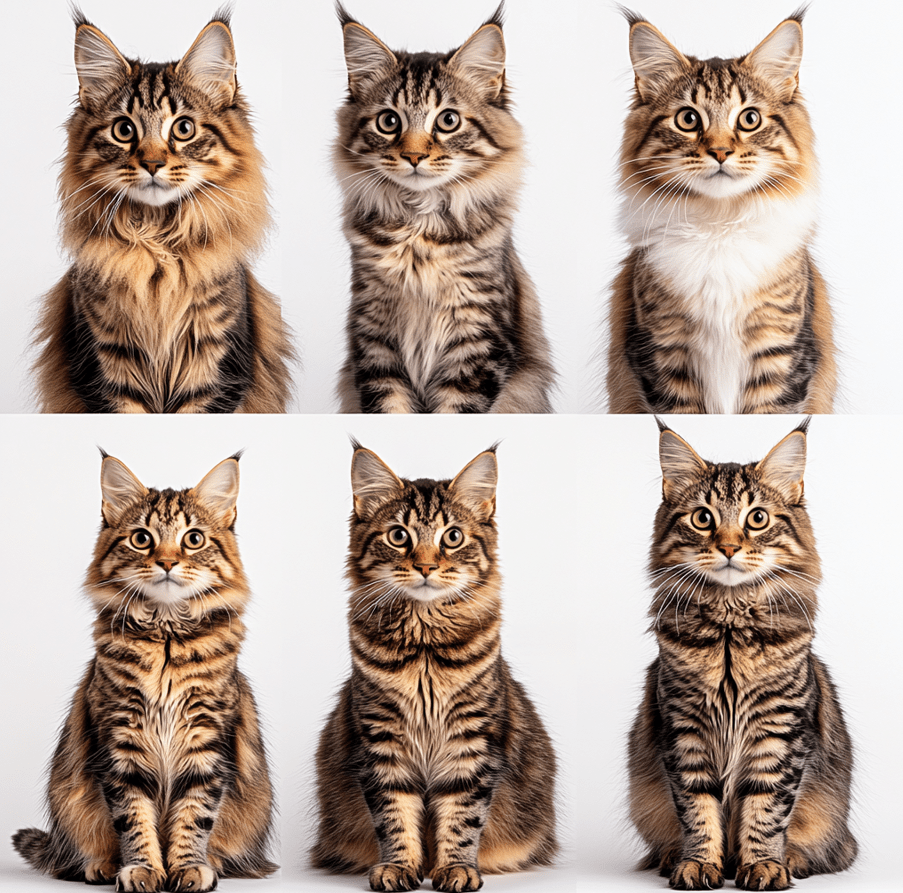
Maine Coon cats are unique in their size, personality, and water-drinking habits, but excessive thirst should never be ignored. Whether it’s due to diet, environmental factors, or underlying health conditions like diabetes or kidney disease, understanding the causes of your Maine Coon’s increased water intake is the first step to ensuring their well-being. By monitoring their habits, providing a balanced diet, and seeking veterinary care when needed, you can keep your Maine Coon healthy, hydrated, and happy for years to come.
If you’ve noticed your Maine Coon drinking more water than usual, start by assessing their diet and environment. If the behavior persists or is accompanied by other symptoms, consult your veterinarian promptly. With proactive care and attention, you can address the root cause and give your feline friend the best quality of life.

